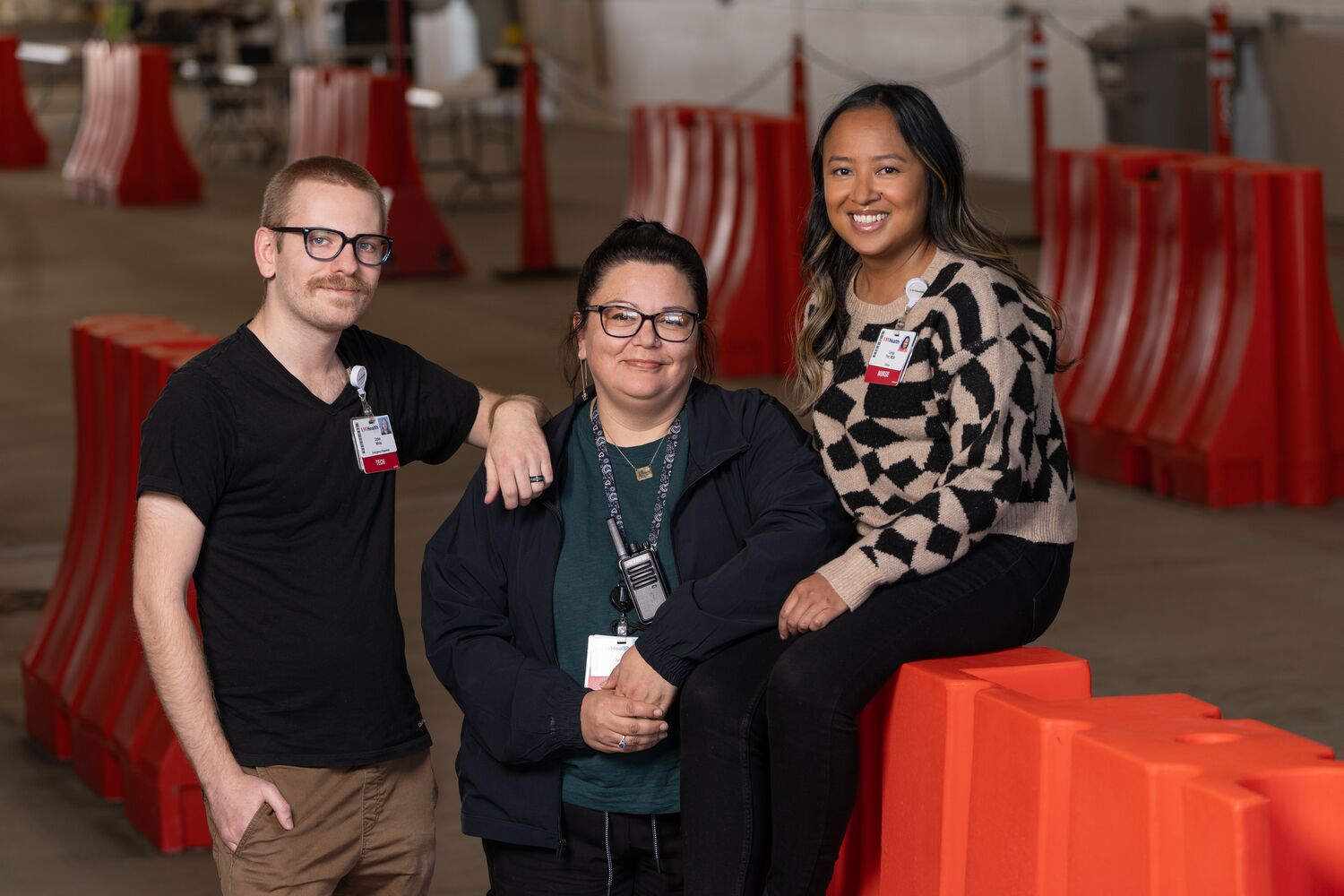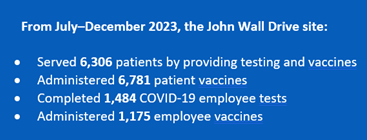Inventive approach to allied health visits

When the COVID-19 pandemic hit in 2020, UW Health flew into action like most health care systems, devising new ways to care for patients and employees in the safest way possible.
One of those efforts was establishing a COVID-19 testing drive-thru site to provide additional access for testing and reduce foot traffic and exposure in clinics and emergency departments. Once COVID-19 vaccinations became available, the drive-thru continued to serve that purpose, and the realization set in that this convenient option could benefit patients and staff in other ways too.
“We received a lot of positive feedback from patients and employees about the drive-thru process, especially parents who enjoyed the convenience of keeping their children in the vehicle rather than going to a clinic,” stated Linda Yim, RN clinic manager, UW Health vaccine clinics. “So, we started to explore how this model could be used long-term to help our primary care colleagues who are often overwhelmed by high patient volumes and low staffing.”
As a pilot initiative in July 2023, the John Wall Drive site started incorporating routine vaccinations (tetanus, hepatitis B, shingles, human papillomavirus infection), seasonal vaccinations (COVID-19, influenza, respiratory syncytial virus (RSV for adults), and testing (influenza, RSV and strep) to provide additional access and divert these visits from primary care clinics while also improving vaccination rates for kids.
“Leaders evaluated the impact of the pilot in early 2024, to determine what a long-term model might look like,” Linda said. “We implemented a soft rollout of additional services in early 2024 including blood pressure checks as well as contraceptive and vitamin B12 injections. If we sustain the drive-thru model, our future state may include durable medical equipment, wound care, supplies and vaccinations for children under 5 years old.”

Positive impact on workforce
With the advent of the drive-thru site in 2020 came the addition of a new clinical support technician (CST) position that was created based on the associated demands.
“This role was a great way to attract people interested in health care with no clinical background because they’re trained on the job by RN leads,” Linda said, noting that although the CSTs are limited in what they can do — mostly swabbing and vaccinating under RN lead supervision — these roles have continued to be a huge asset in providing services to patients. “It’s also great to see the retention and growth among CSTs as many of them are staying with UW Health and taking advantage of the career pathways offered, such as the Medical Assistant Apprenticeship Program.”
In addition to the CST role, the position of lead site RN — initially filled by travel nurses early in the pandemic — was carried over from the testing team that Linda started overseeing in May 2023.
“We had two lead site RNs come on board in late 2023; one was a new hire and the other transferred from one of our clinics,” Linda said. “Both the RN lead and CST positions began as temporary roles that transitioned to permanent roles, which was great to see.”
The drive-thru site also employs 16 RN clinical support staff in part-time capacities (1–2 days per week), but Linda hopes to have these positions become long term in 2024 to support the site’s growing list of services.
Check out more stories featuring the great work of our nurses in the 2023 Nursing Year in Review (pdf).
